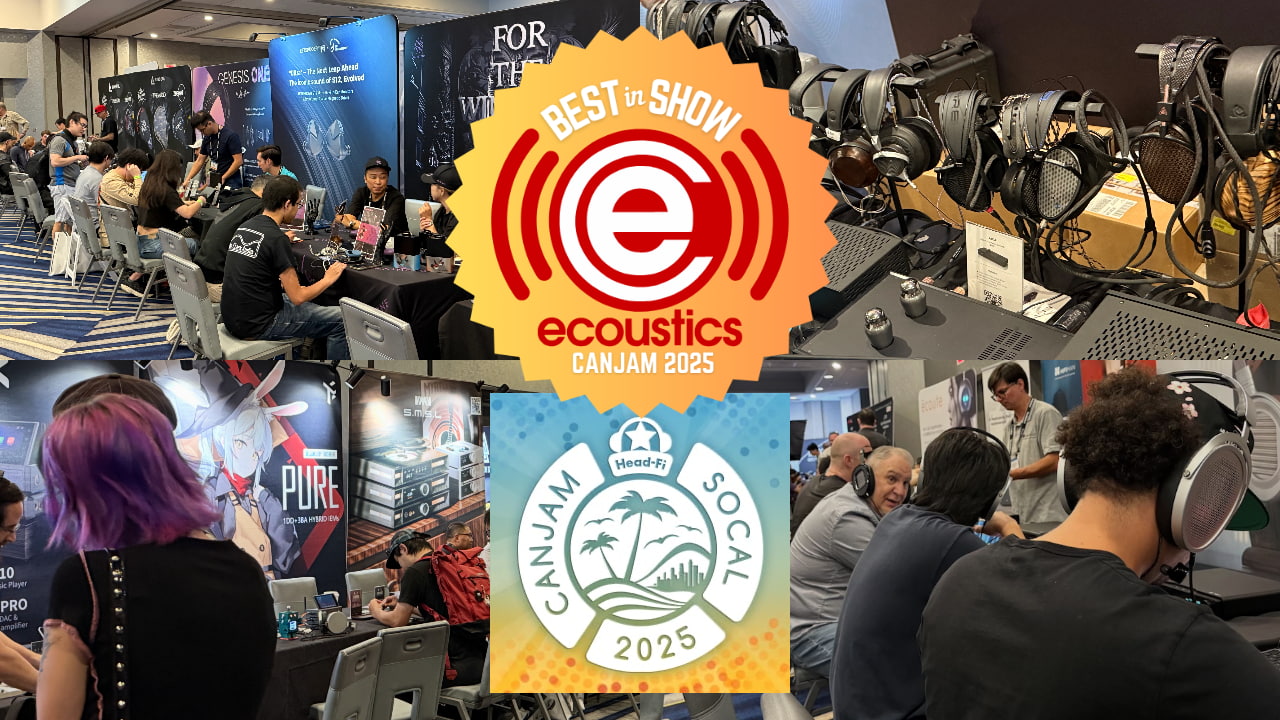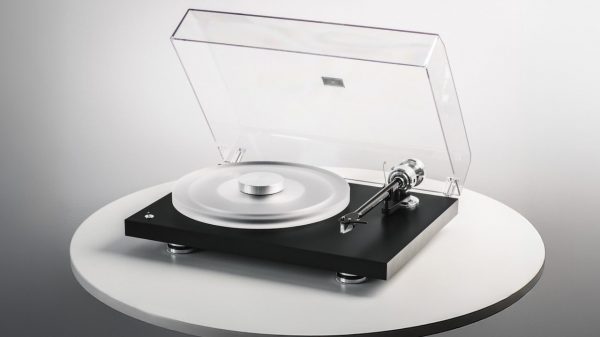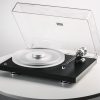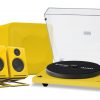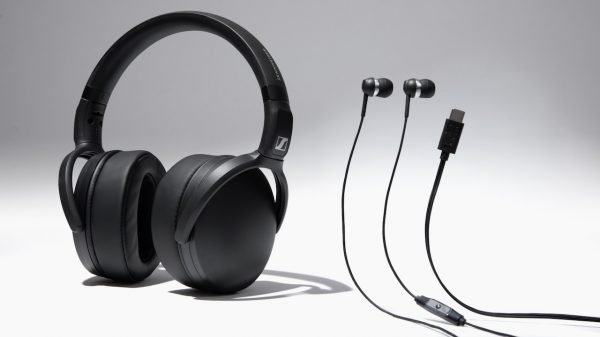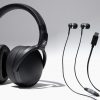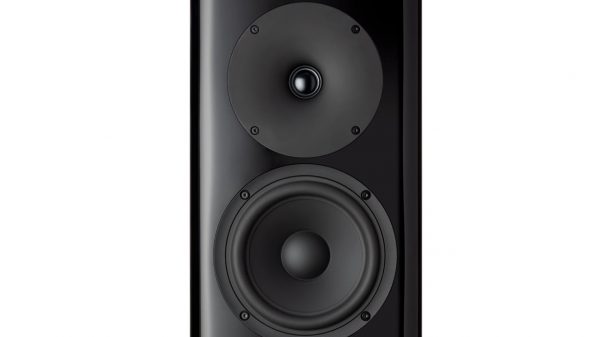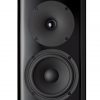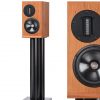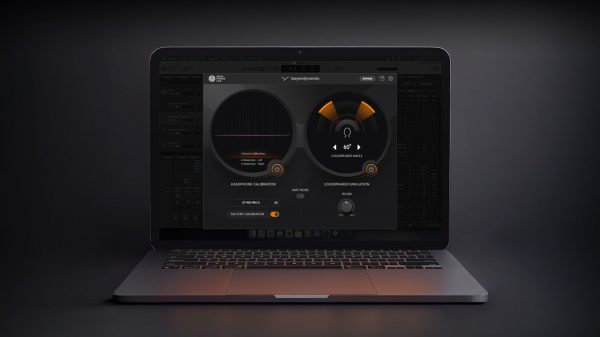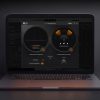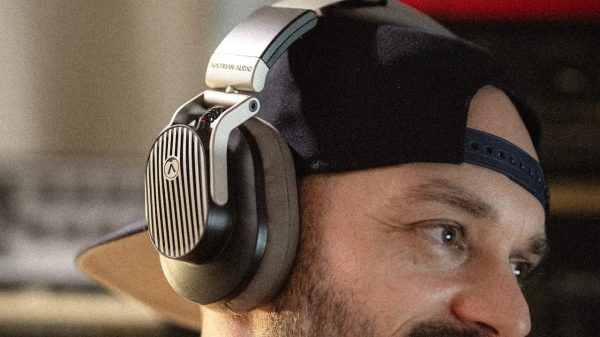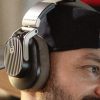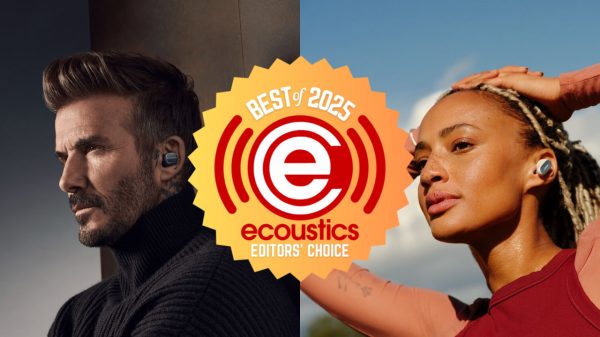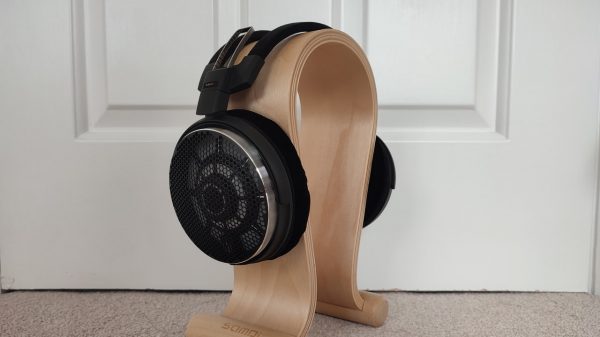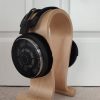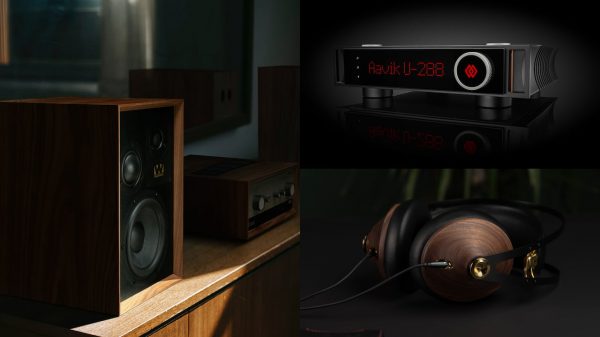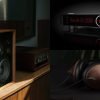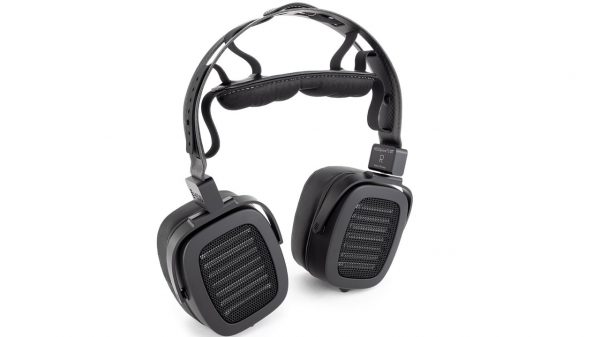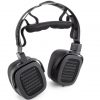CanJam SoCal 2025 returned to the Irvine Marriott for its 7th consecutive year, showcasing the latest in head-fi innovations from September 13-14. This year, the show felt somewhat different compared with the post-COVID rebound years, which featured numerous product launches. While exact attendance figures weren’t provided, it appeared that numbers were flat or slightly down from previous years—there were almost no lines to try the newest gear. On the upside, the event expanded into the second floor, giving exhibitors more space and spreading out the crowd.
Several factors may have contributed to the attendance shift. Pre-event hype was limited, and many top brands, including Focal, Sony, Shure, UE, and Audio-Technica, were notably absent. The prominent headphones.com booth that typically greeted visitors at past shows was also missing, replaced by a surge of smaller, lesser-known IEM vendors. Despite these changes, both days maintained steady traffic, the crowd was young and diverse, and the number of exhibitors reached a record high.
Table of contents
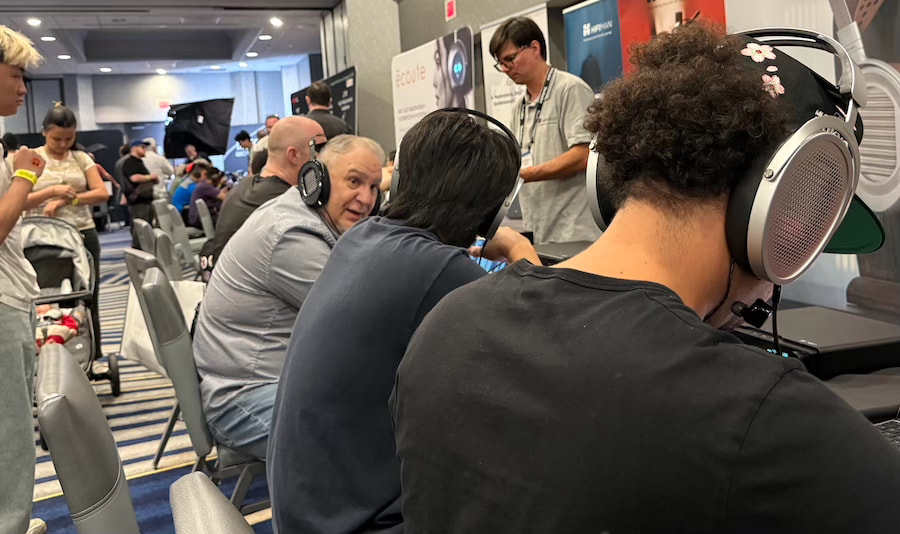
In total, 124 exhibitors filled the show floor across two days spanning 15 hours of exhibit hours. I survived the headphone endurance challenge with just a single coffee break on day one—and still didn’t get to everything. It’s nearly impossible for anyone to audition everything while retaining a clear memory of what was heard. That said, a few key themes and several surprises did emerge.
Best in Show – Warwick Acoustics
I started off reaching for the stars with a visit to the Warwick Acoustics booth. This high-end British brand brought the most expensive headphone rig on the show floor. They were demonstrating the final production version of the Aperio GoldenSound Edition ($38,000) in an A/B comparison with the regular Aperio ($35,000). And yes, those commas are exactly where they belong.
I genuinely appreciated the changes Cameron (Goldensound) implemented, which added a subtle warmth and body to what is arguably one of the world’s most revealing headphones. Interestingly, the sonic differences go beyond simple EQ tweaks—there are actual hardware modifications distinguishing the two models.
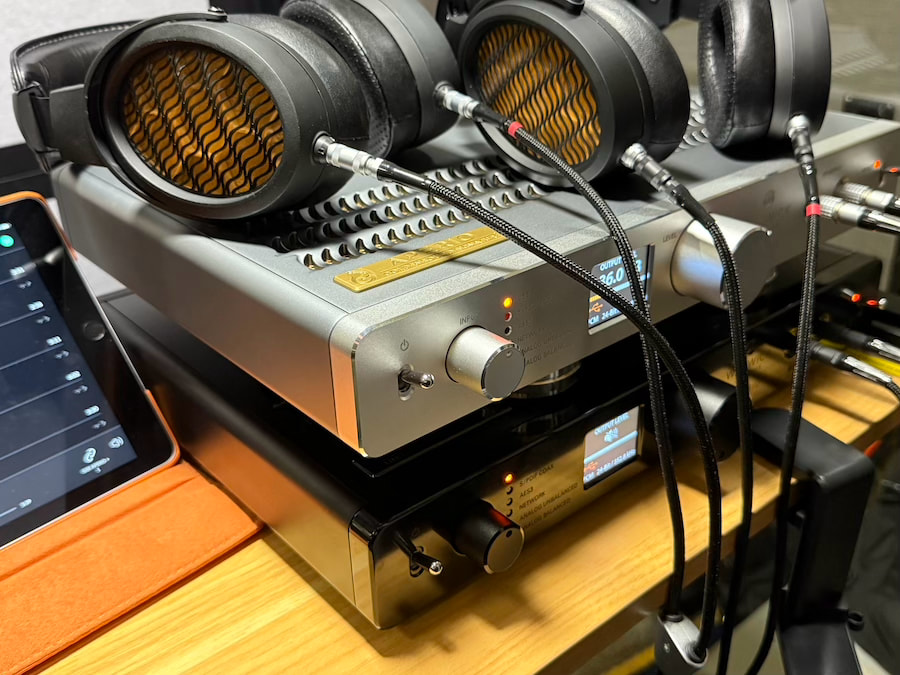
Under $300
With a benchmark in mind, I swung back toward the more affordable end of the spectrum. FiiO continues to excel at the entry-level. I auditioned several models ranging from $77 to $220, including the FT1 (closed), FT1 Pro (open), and JT3 (open)—all no-brainer recommendations for anyone just getting started. My favorite of the trio was the FT1: warm and balanced, though it sounds nothing like the FT1 Pro, despite the confusingly similar name.
Best in Show (closed-back) under $300: FiiO FT1
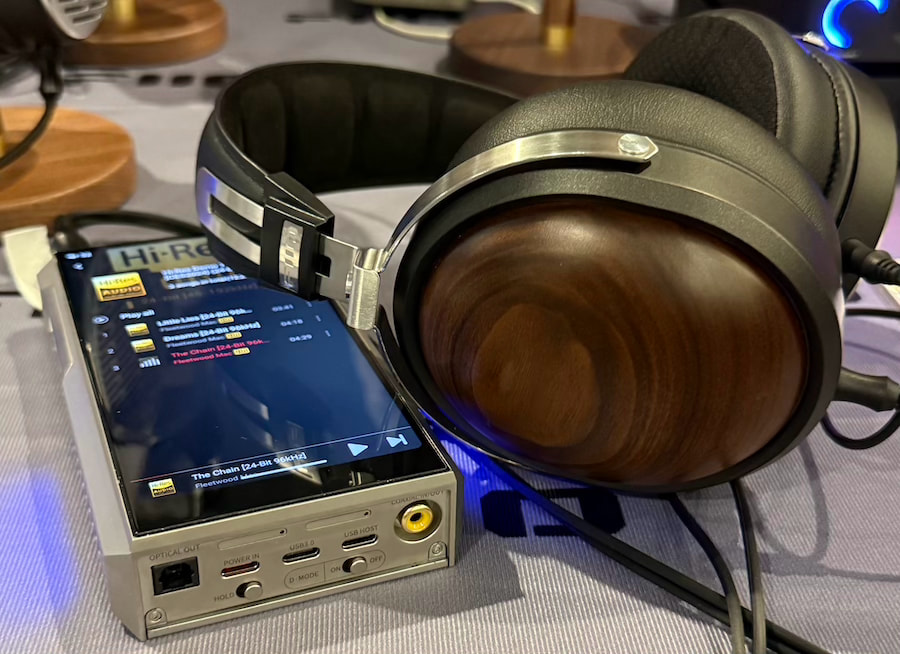
The Grell OAE1 ($299, now $129) first caught my attention a few years ago when I heard the prototype. Its claim to fame is the angled drivers inside the earcups that direct sound back toward your ears. This design creates the illusion of sound in front of you, rather than the typical “inside your head” experience of most headphones. With the production OAE1 now shipping, Grell was demoing new ear pads that offered a noticeable improvement—greater clarity and a smoother, less harsh upper treble.
Best in Show (open-back) under $300: Grell OAE1
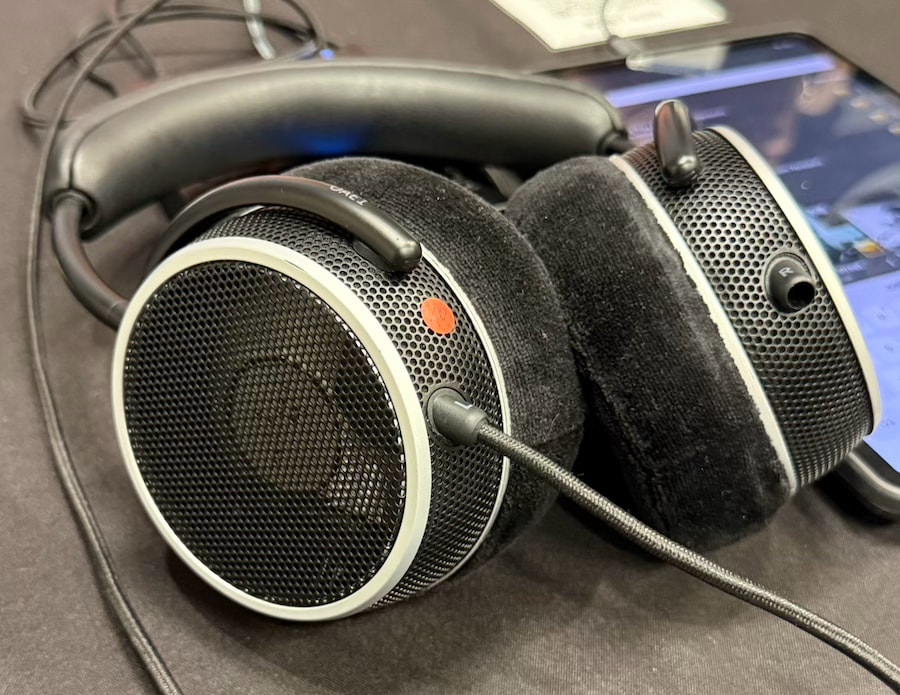
Staying in the affordable zone, I got my first listen to the Technics EAH-AZ100 wireless ANC earbuds—and I was pleasantly surprised. At $299, these are a genuine sleeper in the earbud category and absolutely worth auditioning. I’ve yet to hear another true wireless earbud that sounds better.
Best in Show (wireless earbuds): Technics EAH-AZ100
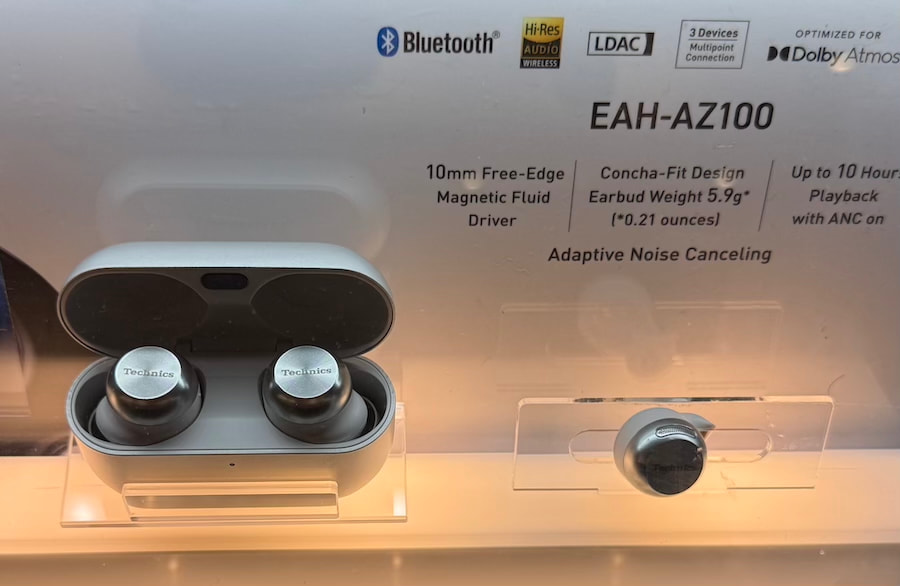
Switching over to affordable wired IEMs opens up a boatload of options. However, only two budget models really stood out: CrinEar’s Cipher (~$100 prototype) and the Apos Rock Lobster ($60, tuned for rock). While neither matches the detail or finesse of high-end models, both deliver just the right amount of bass for a fun listening experience. Oddly, I was less impressed with other CrinEar IEMs—including pricier models—and the Apos Jazz Lobster prototype. As always, musical preference and ear fit play a crucial role when it comes to IEMs.
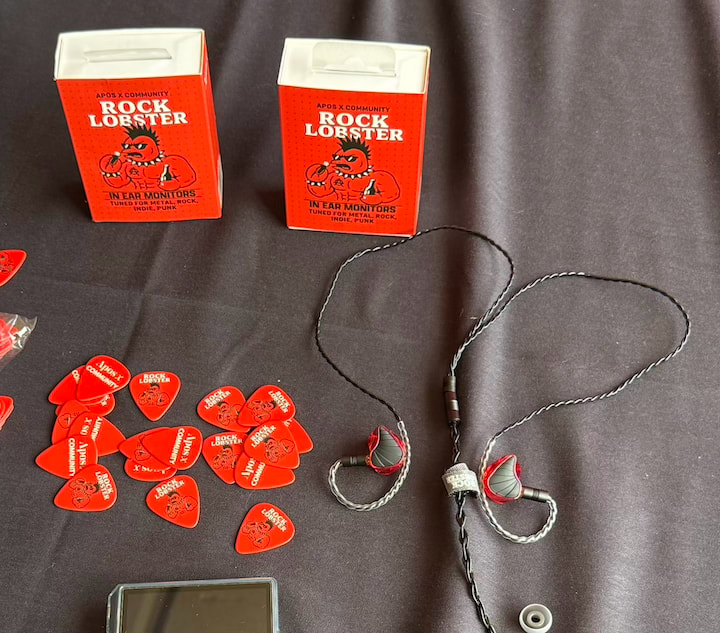
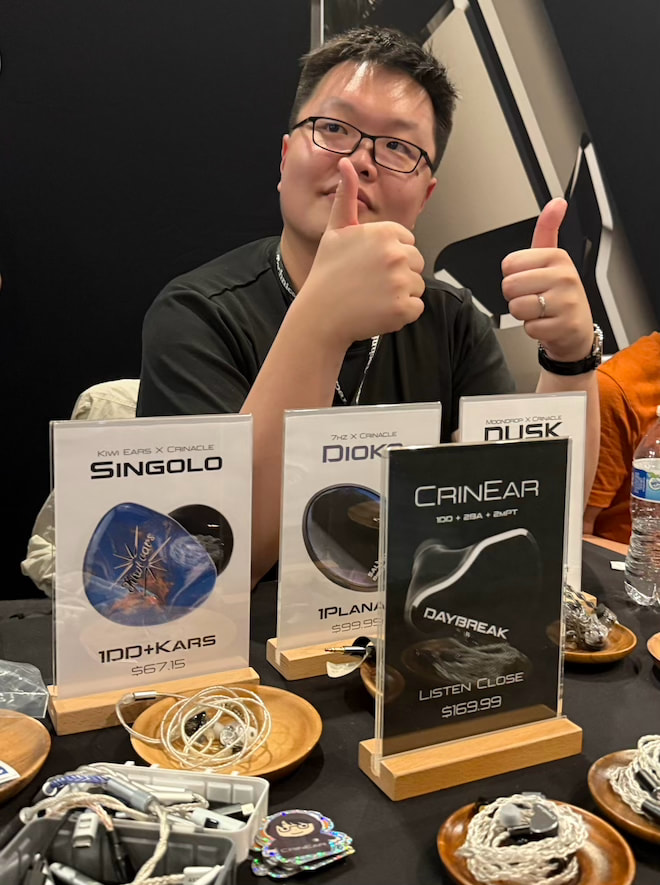
$300 to $500
Jumping up to a $500 budget brings higher performance and improved build quality. Two open-back models stood out: the Meze 105 Silva ($499) and the HiFiMAN Edition XV ($399). I was surprised to learn the Edition XV retails for just $399—it sounded far more expensive. Both are solid choices: HiFiMAN edges ahead in detail, while Meze impresses with warmth, texture, and mid-bass punch.
Best in Show (open-back) under $500 (tie): Meze 105 Silva & HiFiMAN Edition XV
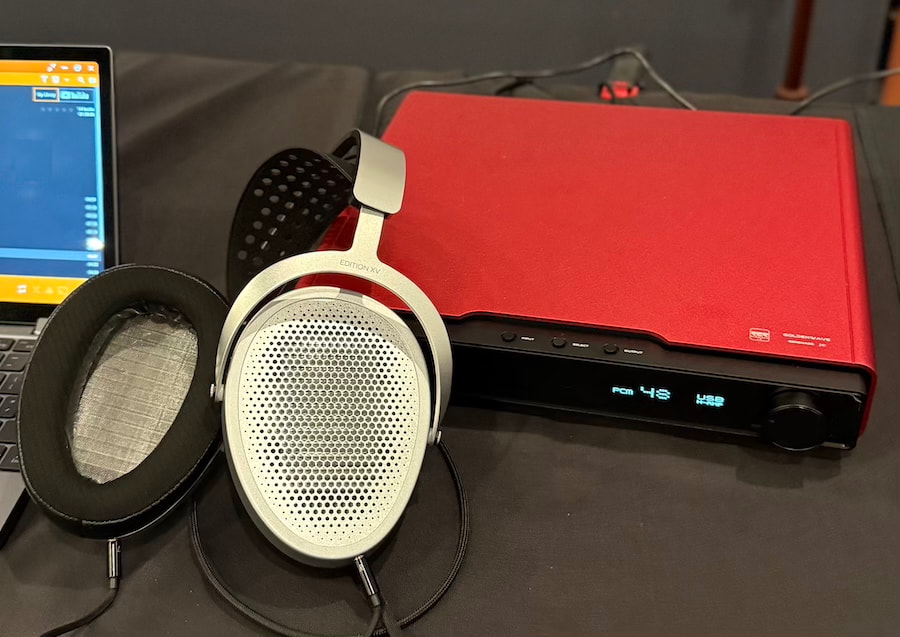
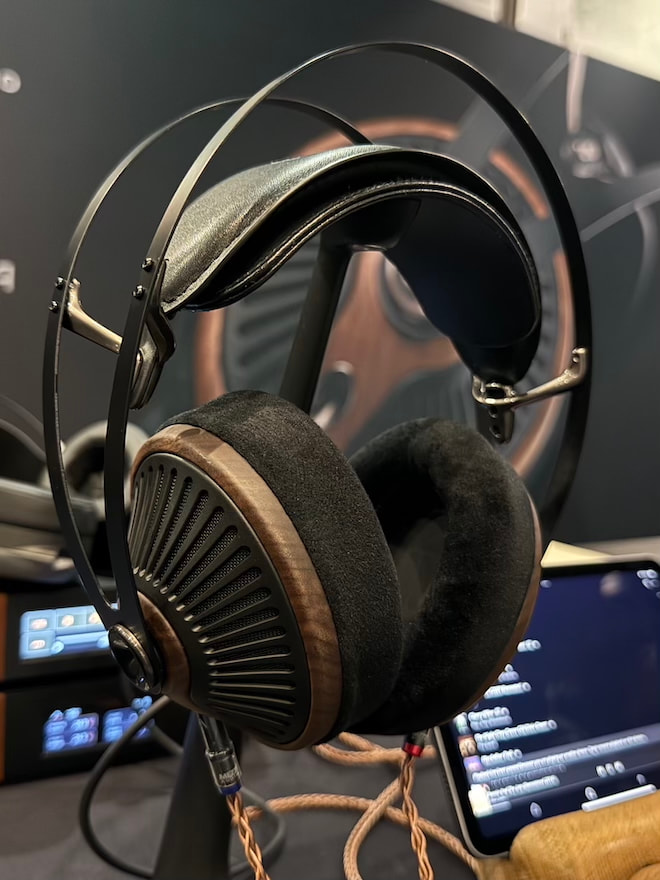
$500 to $1500
Things get really interesting when your budget stretches to $1,500, as the right pairings can deliver significant performance leaps. The HiFiMAN Arya Unveiled ($1,449) was my favorite near the top of this range, offering unmistakable detail and tonal balance from the first listen. It’s the kind of headphone that can genuinely excite someone about the hobby—and one of the most comfortable HiFiMAN models, to boot.
Best in Show (open-back) under $1,500: HiFiMAN Arya Unveiled
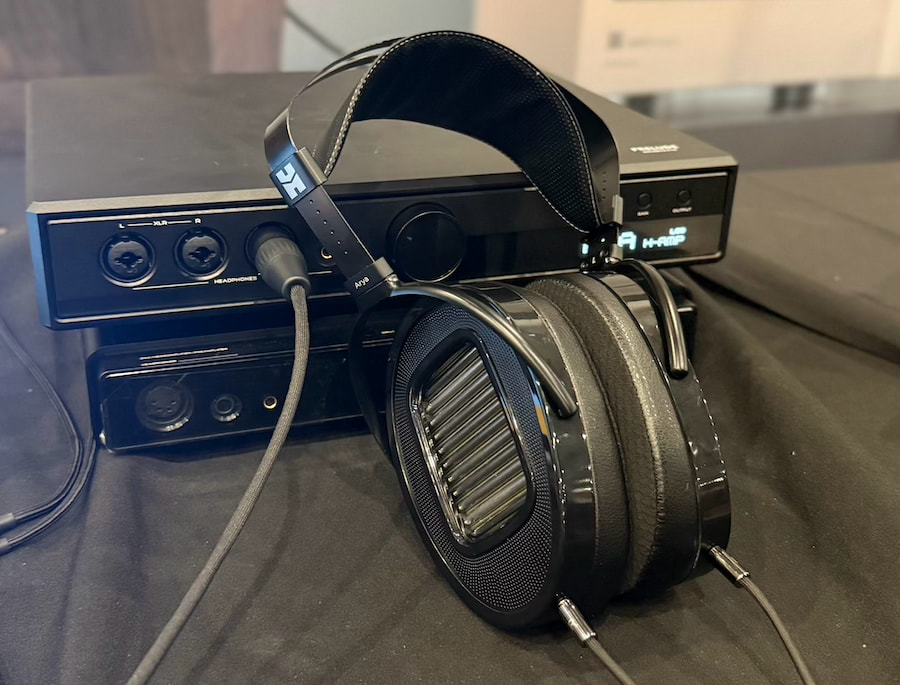
If you want to save a little cash, the Dan Clark Audio Noire XO (open) and X (closed) are excellent choices. Both deliver high performance with super comfortable designs and well-padded earcups. I auditioned the closed model paired with Audma’s BRIOSO PHPA1 portable headphone amplifier, while the open model was showcased in the Dan Clark room.
Best in Show (closed-back) under $1,000: Dan Clark Audio Noire X
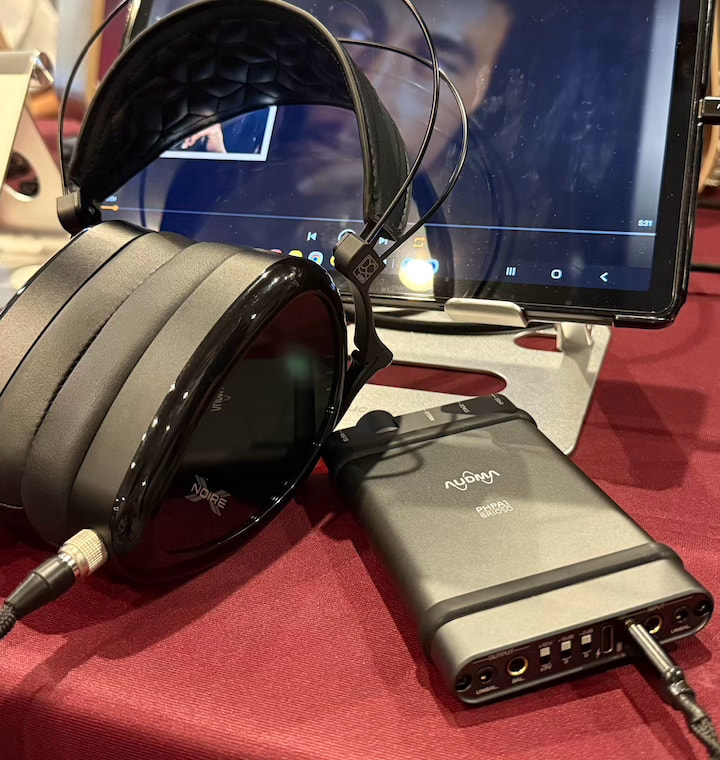
My final pick in this price range goes to a literal glowing contender: the écoute tube-based wireless ANC headphones ($899). Yes, tubes—these headphones include a vacuum tube preamp, yet remain fully wireless with active noise cancellation and support both USB-C and 3.5mm connections.
Best in Show (wireless headphones): écoute
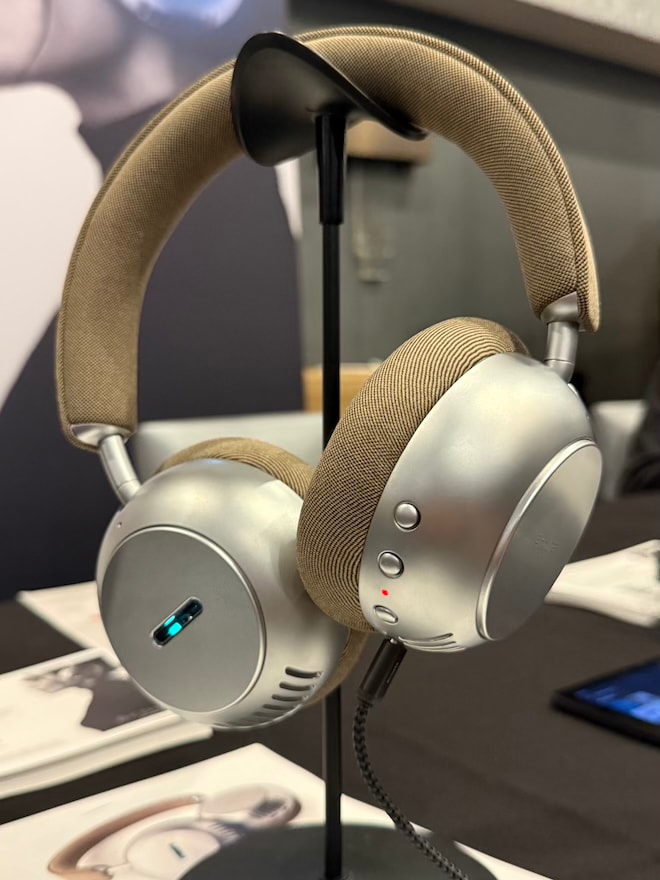
Their default tuning is very warm—perhaps excessively so, with heavily rolled-off treble. Fortunately, this can be adjusted via a companion app that offers multiple EQ presets and manual band control.
In theory, they could double as ear warmers, though I didn’t wear them long enough to confirm. That said, they are quite comfortable, with well-padded cushioning all around.
$1,500 to $3,500
Beyond $1,500, prices climb quickly. The HiFiMAN HE1000 Unveiled ($2,699) takes a “best in show” crown in the crowded under-$3K category. I even prefer it over the Susvara Unveiled ($8,000), largely because it’s lighter and far more comfortable.
Best in Show (open-back) under $3,500: HiFiMAN HE1000 Unveiled
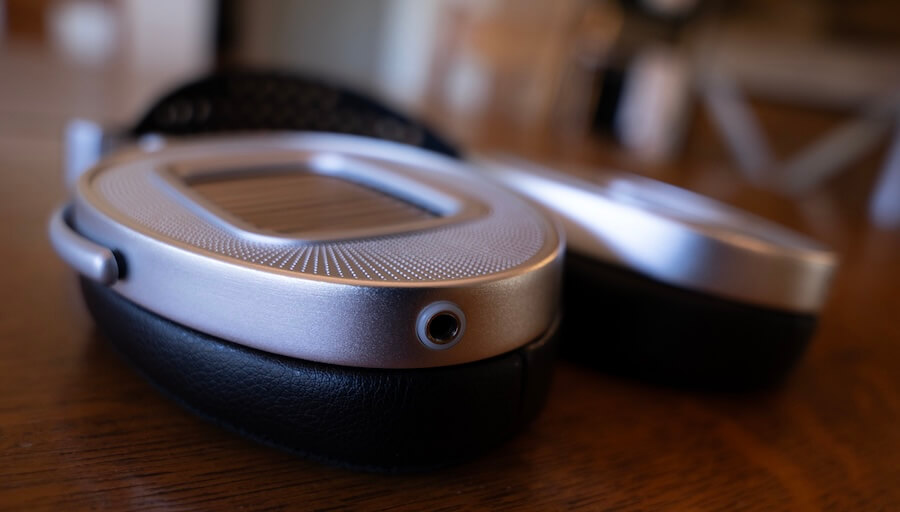
This price range is packed with standout options, and with the right amp and DAC pairing, it would be remiss not to mention a few honorable contenders.
Yamaha arrived ready to crash the luxury headphone party with two new models: the YH-4000 open-back ($2,499) and the YH-C3000 closed-back ($1,699), following their flagship YH-5000SE ($4,999). All three are exceptionally neutral, with a level of detail that mastering engineers would appreciate. I gravitated toward the mid-tier YH-4000, perhaps because it trades a bit of high-end sparkle for more energy compared with the pricier YH-5000SE.
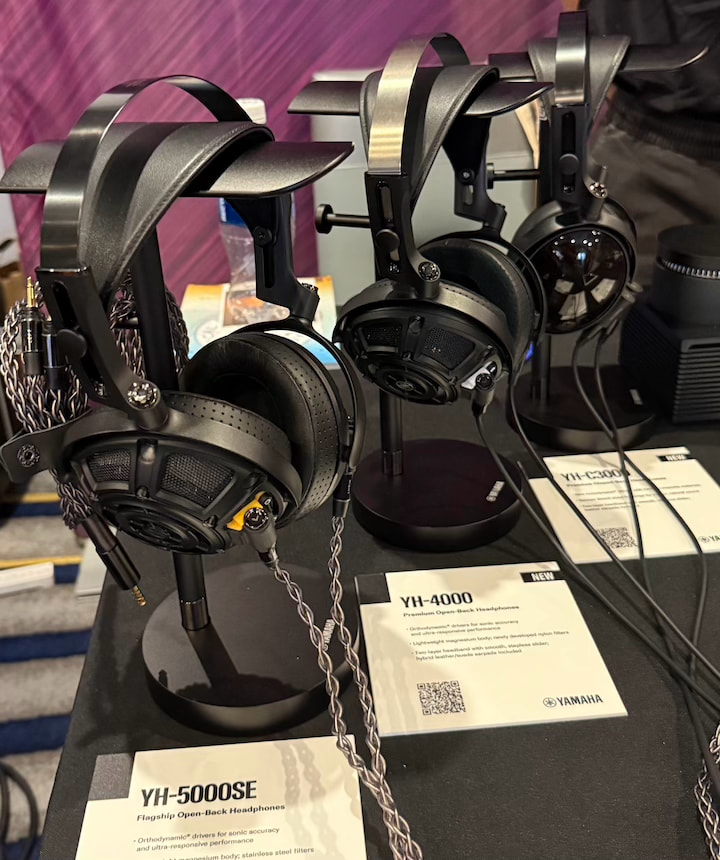
Austrian Audio’s The Composer (headphones) and Full Score One (amp) aren’t new, but this year they were showcased with optional earpads ($200 extra) that softened some of their brightness while boosting comfort. Having heard them at past shows, I can say they sounded even better this time around.
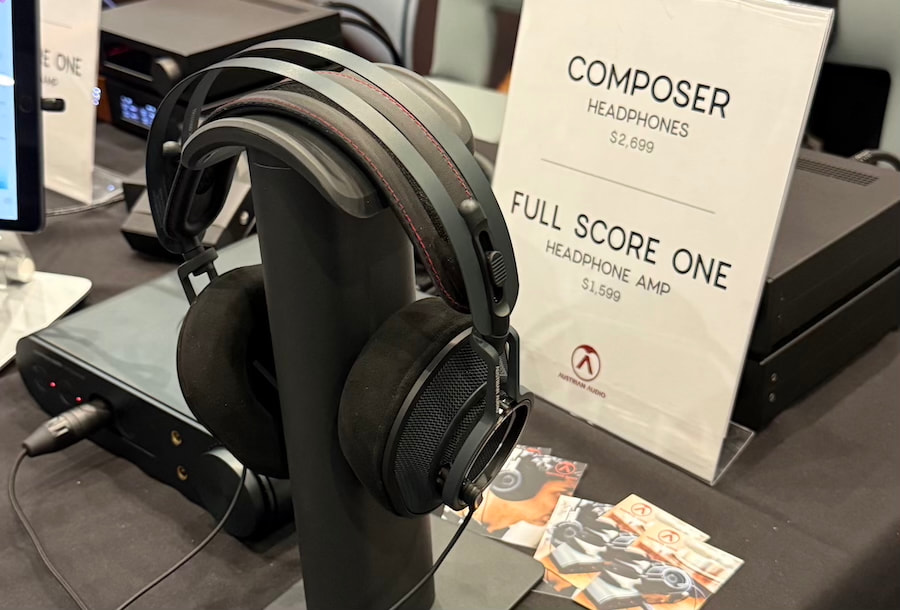
After reading about Grado for years, I finally got to hear their flagships—the Signature HP100 SE ($2,499) and Signature S950 ($2,199). Both are open-back designs with a uniquely rich and luxurious soundstage. While the HP100 SE undoubtedly reveals more subtle details, I found the S950 to be the more enjoyable listen.
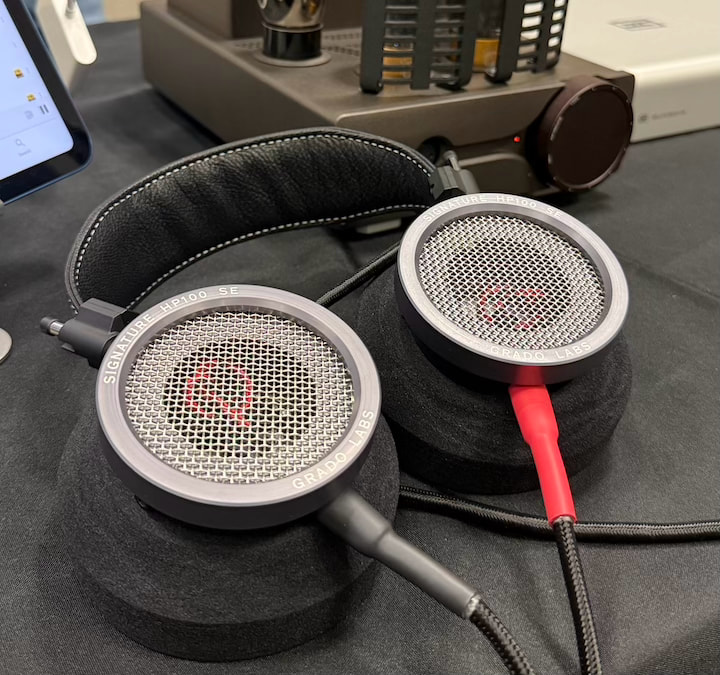
I auditioned many IEMs in the $1,000+ range, including models from 64 Audio, Noble, FatFreq, Dark Matter, and Astell&Kern. For whatever reason, Campfire Audio’s lineup suited my ears and taste best. I was especially impressed with the Campfire Clara ($1,999) paired with the Campfire Relay Dongle DAC ($229), though it’s also hard to fault the Andromeda 10 ($2,499), Grand Luna ($1,399), and Astrolith ($2,199).
Best in Show (IEM): Campfire Audio Clara
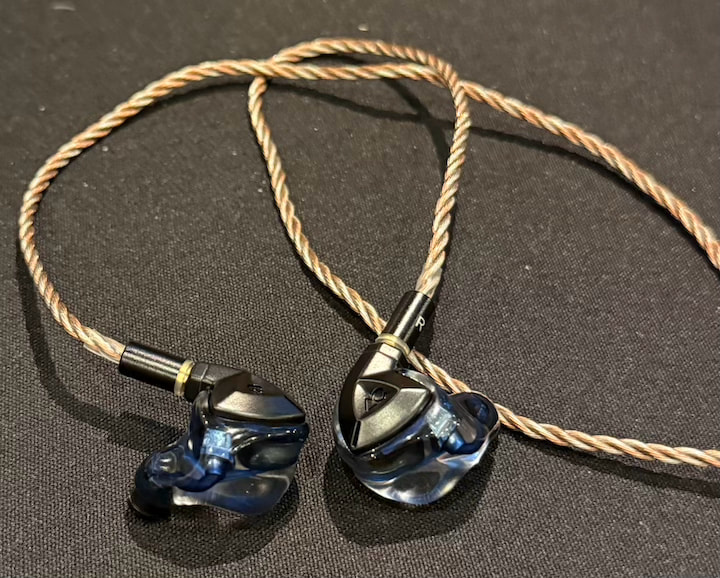
Schiit Audio’s booth drew a steady crowd, largely for its budget headphone amps and DACs, which remain hard to beat at every price point. My attention, however, went to the Byggy Schiit—otherwise known as the Yggdrasil Singular DAC ($3,499). It delivers an organic, natural quality, at least as far as a DAC can. It doesn’t sound like other DACs because it isn’t built like other DACs: according to Schiit, it uses proprietary technology with no off-the-shelf DAC components.
Best in Show (DAC): Schiit Yggdrasil Singular DAC
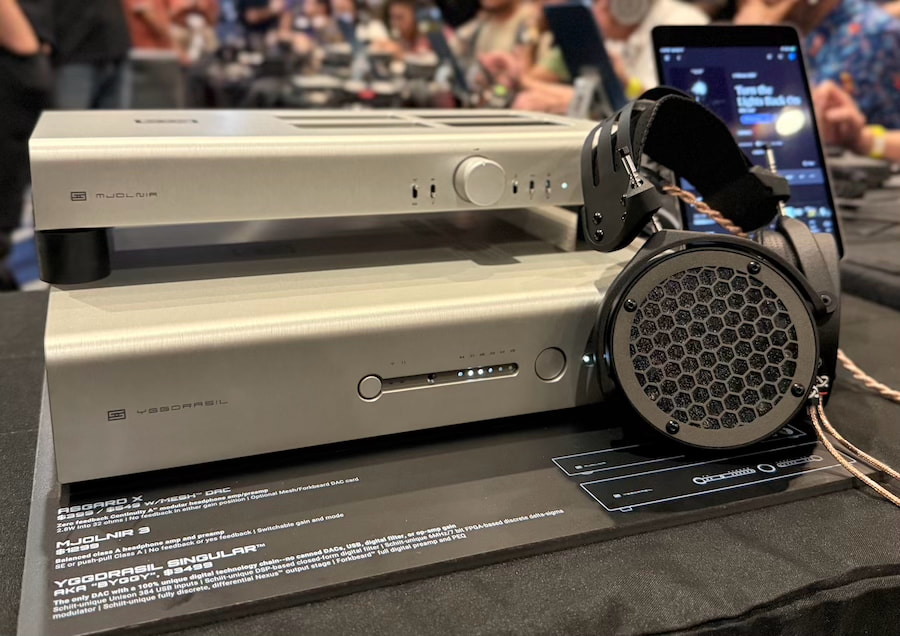
My final listen at CanJam SoCal 2025 was in the ZMF room, just before they packed up. I managed a quick audition of the ZMF Ori 3.0 closed-back planar-magnetic headphones ($2,199) paired with a Holo Audio May stack ($6,128), and it was a real treat. Their uniquely designed ports provide a satisfying bass boost, while plenty of midrange warmth makes them easy to enjoy for extended listening sessions.
Best in Show (closed-back) under $3,500: ZMF Ori 3.0
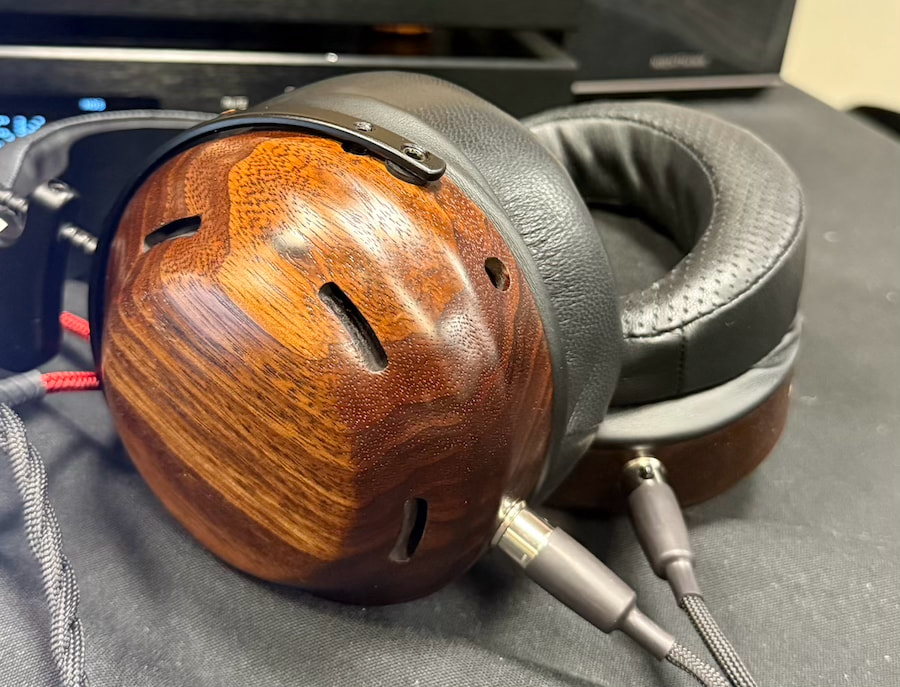
Headphones & Gear Above $3,500
Oddly, only Warwick Acoustics brought something new to the ultra high-end range this year: the previously mentioned APERIO GoldenSound Edition ($38,000), which earns our “Best in Show” sound at CanJam SoCal 2025. It’s a complete system, including electrostatic headphones, DAC, and amp.
Of course, I still have many favorites among flagship models, including the Audeze CRBN2, Dan Clark Audio Expanse, HiFiMAN Susvara Unveiled, and Sennheiser HE1. I didn’t spend time auditioning them this year, having heard them at previous shows, but they remain past award winners and are well worth an audition.
CanJam SoCal 2025: Standout Surprises & Unexpected Highlights
If you were lucky enough to venture upstairs into the Apos room, you’d find a couple of intriguing prototypes. Jeffery Yin of SJY Audio was showing a square-shaped open-back prototype priced around $1,000, featuring a novel design I haven’t seen before—flip-around earpads that are half perforated, which subtly change the tonal balance in the 2–3 kHz region depending on how they’re inserted.
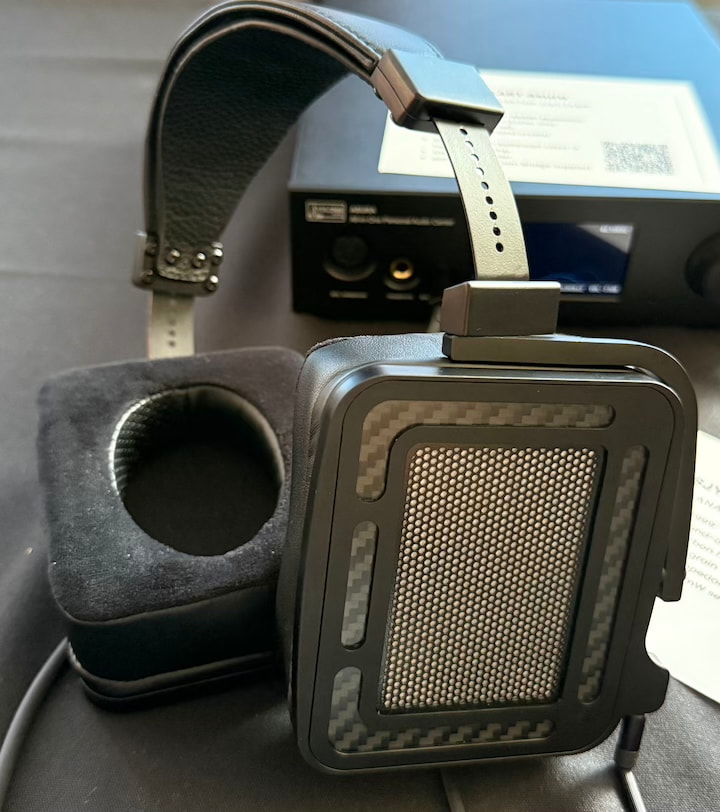
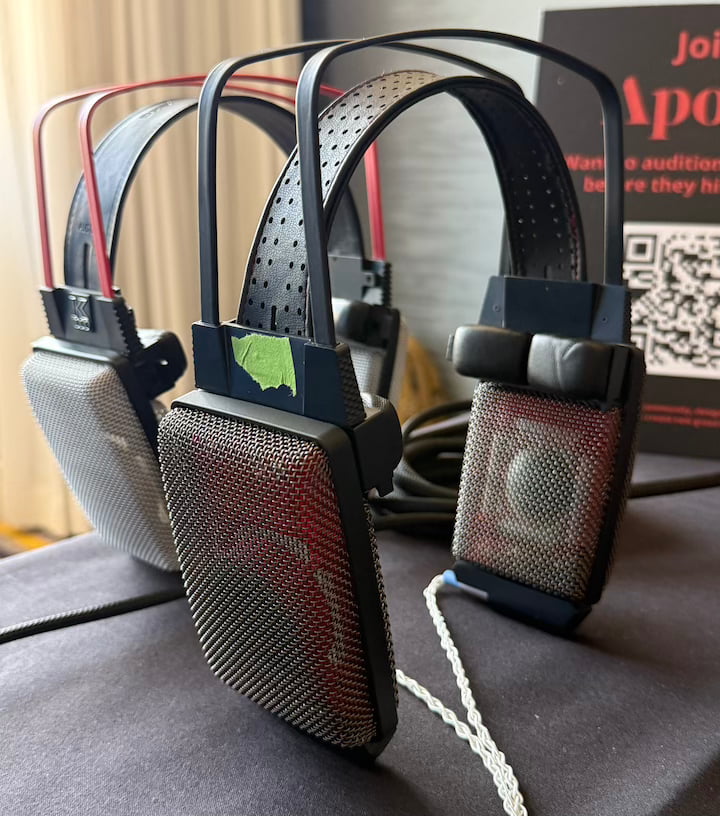
I also came across Apos Community’s K1K reinvention of AKG’s K1000 Earspeakers. With drivers that essentially float over your ears, this contraption surprisingly sounded more like speakers than headphones. I was tipped off to try the Queen Mary “torture test” track, which proved to be an incredibly fun listen. I hope these make it to market, though the concept unit I tried was barely holding itself together with duct tape.
The Bottom Line
After two days of intense listening, I came away with a clear takeaway: you don’t have to buy—or even like—the top-of-the-line models to enjoy great sound, and you don’t need to second-guess yourself in the process. In many cases, I found myself preferring middle-of-the-line or step-down models. While differences between headphones were audible and appreciable, I naturally gravitated toward the ones that drew me closer into the music.
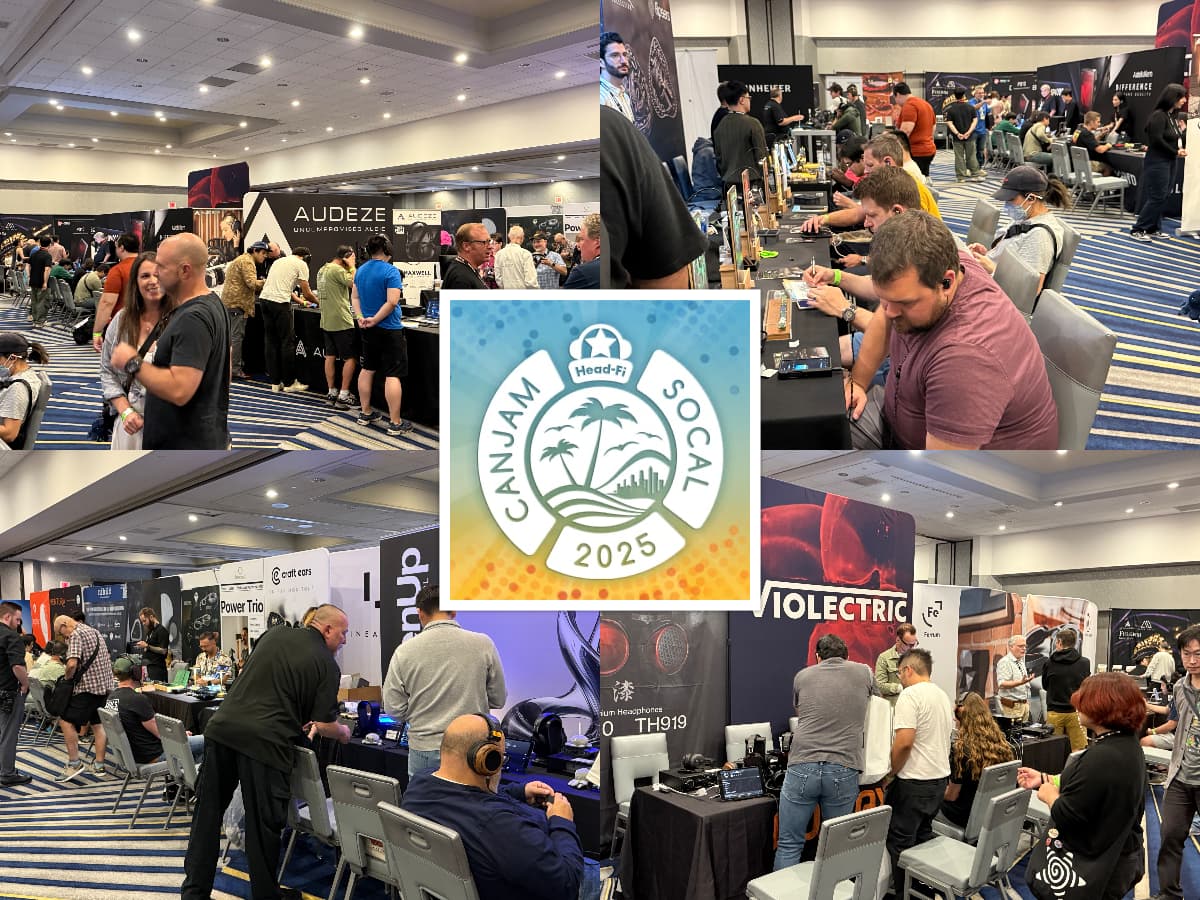
With fewer brand-new models at this year’s CanJam, most improvements were subtle tweaks to existing designs. Earpads proved their influence, there were plenty of fancy headphone cables, and an endless parade of dongle DACs.
It’s encouraging to see high-end headphone innovations trickling down to more affordable price points. That said, the sky-high prices at the top end aren’t showing any signs of slowing, and such pricing may intimidate more potential listeners than it attracts.
Ultimately, the sheer number of audiophile headphones continues to grow, and each year they manage to sound even better than the last.
Related Reading:
- The Best Desktop DACs And Headphone Amps From CanJam London 2025
- The Best Portable DACs, Dongles & DAPs From CanJam London 2025
- Best In Show Headphones At CanJam London 2025 & Must-Hear Highlights
- CanJam NYC 2025 Headphone Highlights: HiFiMAN, Meze Audio, Audeze, Focal, Pud And More

